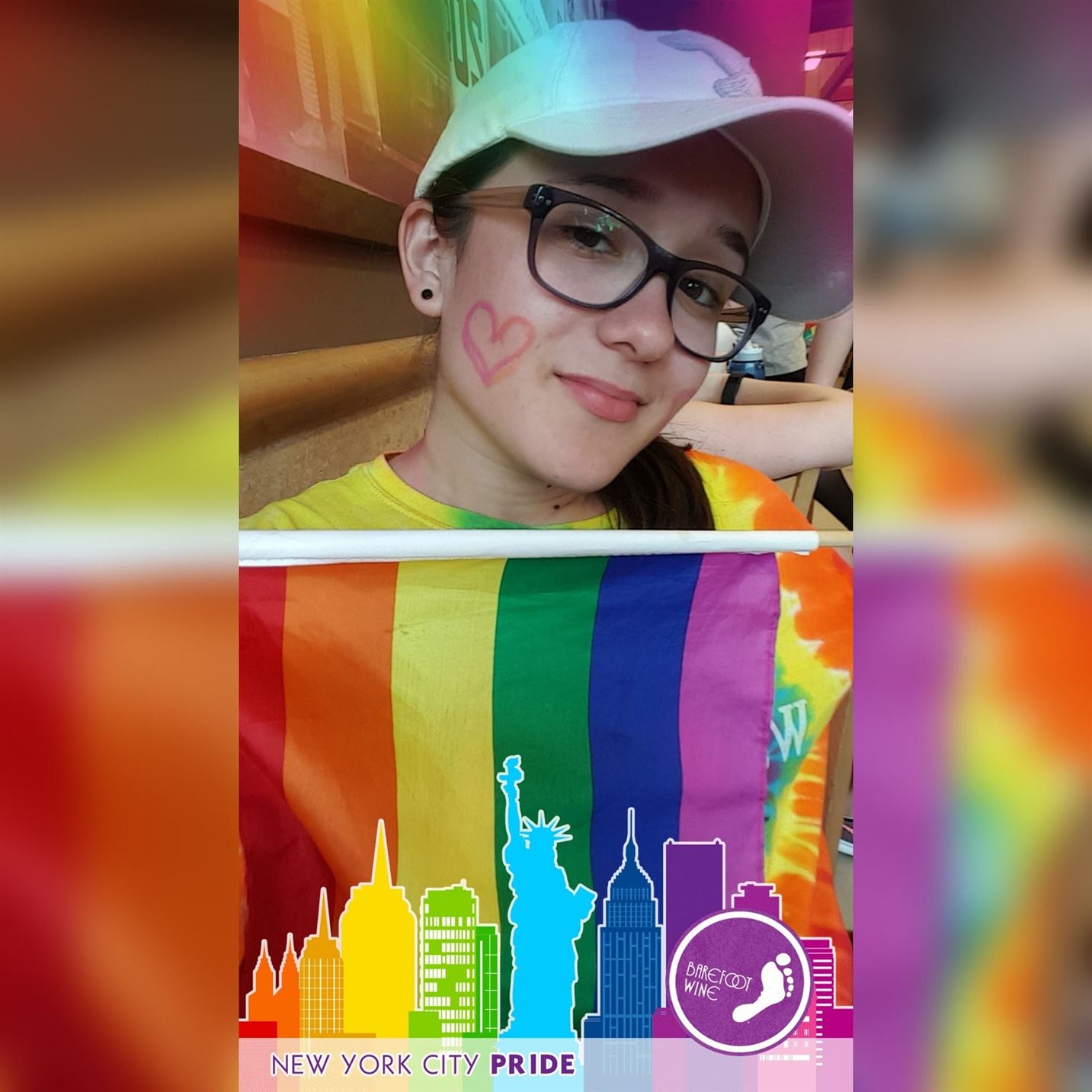When 17-year-old Daniela Vega decided to uproot her life in Peru and move to the United States, she did it for three reasons. First, college was an unlikely possibility for her since she lacked financial support in her native country. Second, she believed an American degree could open doors for her both domestically and internationally. Third, the idea of being allowed to love who she wanted and be herself intrigued her.
Vega, now a 22-year-old Montclair State University student, discovered she liked girls while attending a private Catholic school in Lima, Peru. Her school, according to Vega, was conservative and tried to “keep the heteronormativity” among students. Vega explained how her only formal introduction to same-sex relationships was through media, which portrayed more gay men than lesbians.
It was through her first experiences with cable television that 11-year-old Vega was exposed to the idea of being able to love women.
“[My mom] let me watch whatever I wanted, and I remember I watched a reality show called ‘A Shot at Love with Tila Tequila,’ which is similar to ‘The Bachelor’ or ‘[The] Bachelorette,'” Vega said. “It was a dating reality show and [the girl] would date boys and girls. So that show opened my eyes.”

The show helped Vega realize it was possible for women to be attracted to other women. She said it taught her that men were not the only ones who had the freedom to choose who they wanted to love.
“I was young, but still capable of understanding that women can be with anybody they want, not only men,” Vega said. “I was told before that men have freedom. Men can have sex and enjoy it, and they can go out and be free. But women have to be virgins and stay virgins until marriage.”
To date, civil unions and same-sex marriage are not legally allowed in Peru. According to the most recent report by the U.S Department of State, 85 percent of Peruvians identified their religion as Catholic. Vega believes religion was part of the reason the LGBTQ+ community was not able to gain proper recognition in Peru.
“People are so into religion that it is hard for them to understand that being gay is not a problem,” Vega said. “They base all their beliefs on what the church, God or ‘The Bible’ tells them. And a lot of people say that being gay is a sin because it is in the Bible, and it is really not.”
Flavia Arana Cisneros and Esteban Arias, both political science majors in Peru and friends of Vega, agreed the country is not ready to legalize same-sex marriage yet.

“It’s dangerous being part of the LGBTQ+ community in Peru,” Cisneros said. “They don’t respect you, from looking at you badly, [to] hitting you or forbidding you to enter certain spaces. It is obvious that there is a lot of discrimination here.”
However, Arias said that he never saw any discrimination with his own eyes but heard stories about it. A student at Universidad Antonio Ruiz de Montoya, Arias explained that he likes to think of the people within the LGBTQ+ community as “individuals, like we do with non-LGBTQ+ people” to make “them feel included and not especially different.”
“I study political science and we try to impose public policies that consider them,” Arias said. “I also like to think about them as individuals that have the terrible problem of being ignored by the state, and we need to fight against that, of course.”

According to Peru’s constitution, all citizens have the right to be treated equally under the law. “No person shall be discriminated on the basis of origin, race, gender, language, religion, opinion, economic situation or any other reason,” it said.
While sexual orientation and gender identity are not specifically mentioned, legislation was passed in 2012 to prevent hate crimes against the LGBTQ+ community. However, according to a study conducted by the Center for the Promotion and Defense of Sexual and Reproductive Rights (PROMSEX), hate crimes have only gotten worse.
A graduate coordinator for the Multicultural Center at Montclair State, Charles Simonson, explained that the LGBTQ+ community faces a lot of discrimination and hate crimes.
“I do think that we face a lot of bashing, especially if you are not passing as a cis-gender or masculine person,” Simonson said. “If you are someone that identifies as a woman, and you are not passing as a feminine woman, then you are more accessible to become a target to people. We do live in a world [where there are] hateful people that don’t understand us or who we are. They take that and they act upon it, so we do face a lot of discrimination, bashing and even physical [violence].”

Vega explained that she enjoys living in the United States because she can wear her “loose jeans and flannel shirts” and not be stared down or called a “dyke” like in Peru. Still, she admitted she loves her country and hopes to live there again regardless of whether or not same-sex marriage becomes legalized.
“I am ready to kind of deal with it and be like, ‘Yes, I am gay, I’m Peruvian, I’m living in Lima, and I am going to be myself,’” Vega said. “’I am going to hold my girlfriend’s hand, and I don’t care what you tell me or what you do to me,’ as long as they don’t hurt me.”




